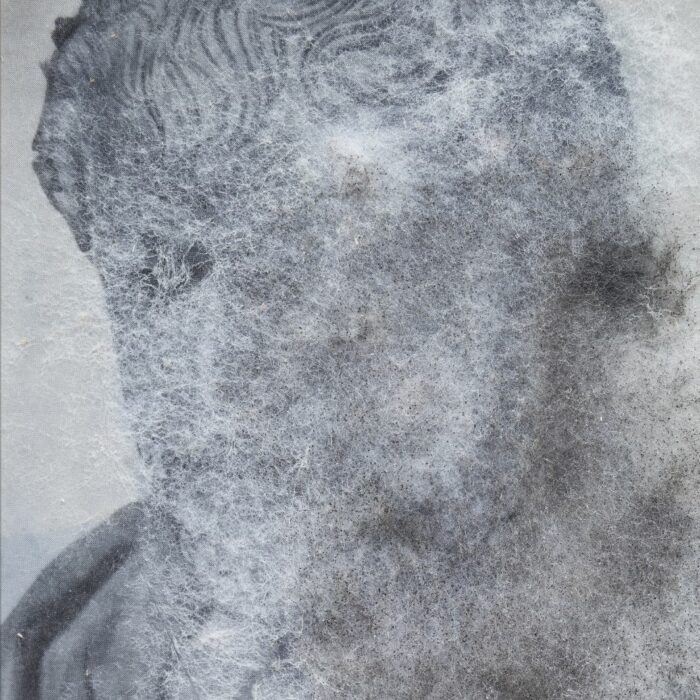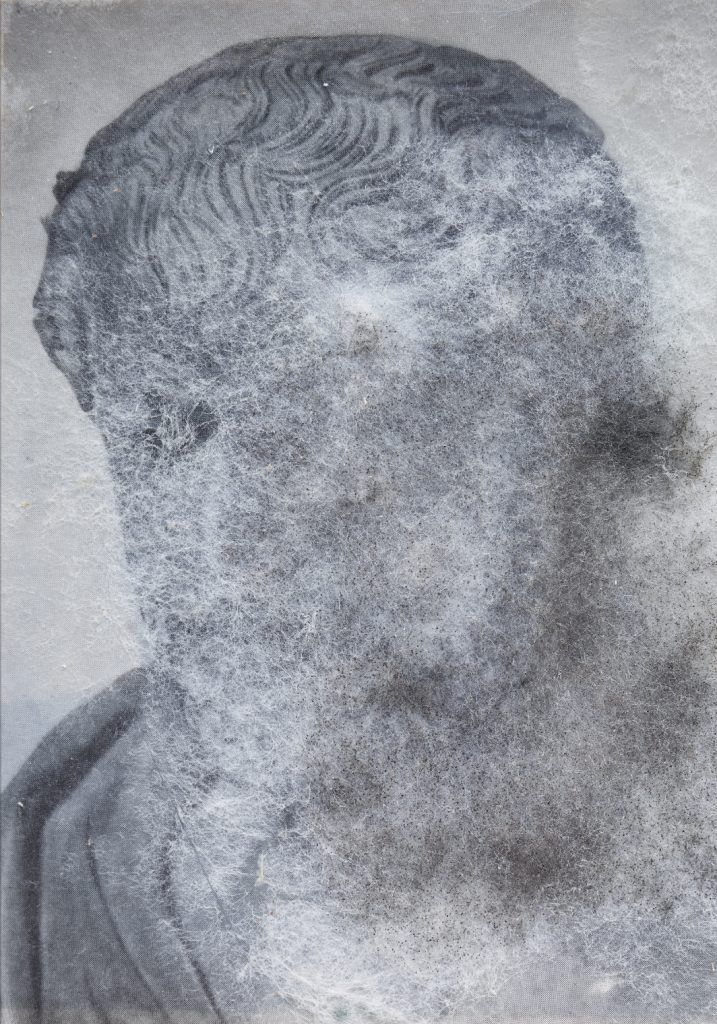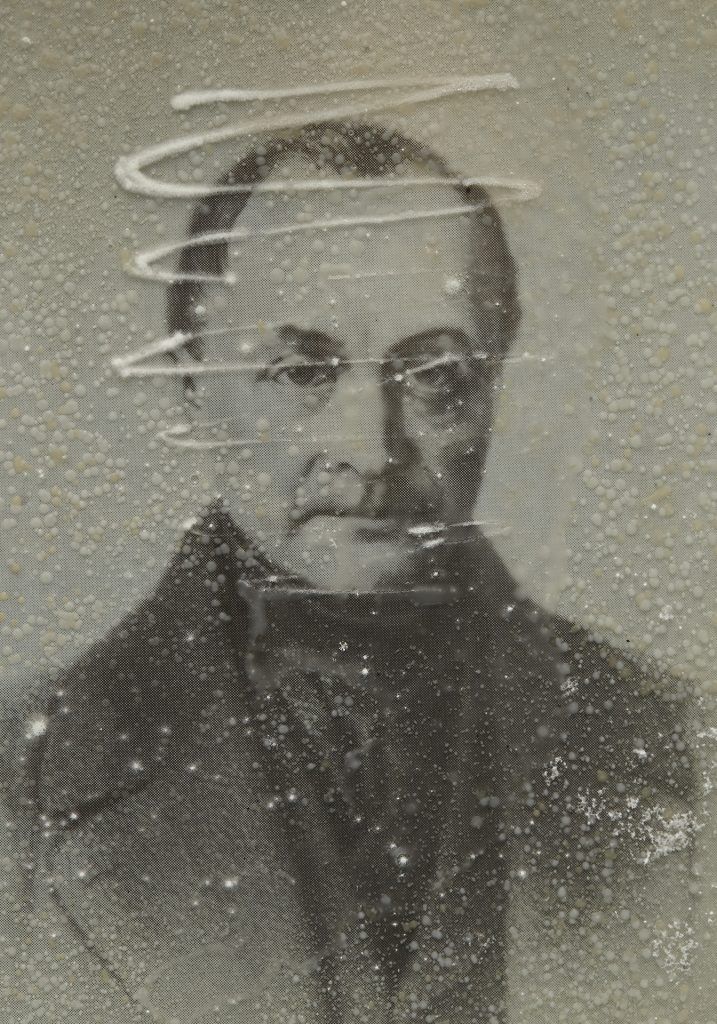From the same artist
More artists from the following country:
Poland

Aristotle and Scedosporium apiospermum, from the series Zoe-therapy
Diana LELONEKClick on the coloured dots and discover the european historical context
Browse the calendar and discover the european historical context
- 2011
- 2012
- 2013
- 2014
- 2015
- 2016
- 2017
- 2018
- 2019
- 2020
- 2021
- 2022
- 2023
- 2024
- 2025
- 2026
- 2027
- 2028
- 2029
- 2030
- 2031
-
2011
Acquisition programme
Acquisition programme of works of art from Bulgaria and Romania following the Bureau decision from 13 December 2006
(…) artistic trades constitute one of the pillars on which our cultural heritage and our economy rest (…) their continuity must therefore be safeguarded by means of appropriate mechanisms for passing on knowledge and skills, as emphasised in Parliament’s resolution of 10 April 2008 on cultural industries in Europe (…)
European Parliament resolution of 12 May 2011 on unlocking the potential of cultural and creative industries (2010/2156(INI))
Establishment of a temporary rotating exhibition to mark rotating EU presidencies, starting from January 2011 (…)
The exhibition would be organised by a rotating system following the changing of the EU presidencies. Every six months, the Artistic Committee would decide on a selection of 8 to 10 works of art from the Member State concerned(…) GEDA D (2010) 41679
-
2012
Martin Schulz
Martin Schulz served as President of the European Parliament from 2012 to 2017.
Art@Europarl
The Art@Europarl exhibition presents a small selection of 27 works, mostly paintings, by artists from 27 EU countries at the Parlamentarium, the Parliament’s visitors center. It’s the first time that the general public has direct access to part of the collection.
The European Union gets Nobel Peace Prize
The EU is awarded the Nobel Peace Prize in Oslo for the contribution of Europeans to peace and reconciliation.
-
2013
Acquisition programme
Acquisition programme of works of art from Croatia following the Bureau decision from 13 December 2006.
Enlargement Croatia
Croatia becomes the 28th member of the EU and newly-elected Croatian MEPs take their seats in the European Parliament.
-
2014
2014 European elections
The eighth European elections take place in 28 EU countries. The European People’s Party (EPP) retains the largest political group in Parliament, but new parties gain influence. Turnout remains largely at 2009 level.
-
2016
Brexit referendum
UK voters decide to support leaving the European Union in a closely-fought referendum called by UK Prime Minister David Cameron. The outcome of the referendum triggers the resignation of Cameron. His successor Theresa May pledges to take the UK out of the EU and initiates the process on 29 March 2017.
-
2017
Antonio Tajani
Antonio Tajani served as President of the European Parliament from 2017 to 2019.
-
2019
David Sassoli
David Sassoli served as President of the European Parliament from 2019 to 2022.
Value of culture
(…) the intrinsic value of culture and of artistic expression should always be preserved and promoted and that artistic creation is at the heart of cooperation projects. European Parliament legislative resolution of 28 March 2019 on the proposal for a regulation of the European Parliament and of the Council establishing the Creative Europe programme (2021 to 2027) and repealing Regulation (EU) No 1295/2013 (COM(2018)0366 – C8 0237/2018 – 2018/0190(COD))
2019 European elections
The European elections in May 2019 see about 51% of EU voters go to the polls, the highest turnout in 20 years. The centre-right European People’s Party and centre-left Social Democrats lose seats but remain the two largest groups in Parliament, while other centrist and liberal parties make gains.
-
2020
Brexit
After the European Parliament ratified the withdrawal agreement on 29 January, the UK leaves the EU about three and a half years after voters supported the move in a referendum.
As of 1 February, the number of EU member states is 27 and the term of office of UK MEPs ends. The number of MEPs is 705 (previously 751), as some of the UK seats are allocated to existing member states to reflect demographic changes, while others are kept in reserve for when another country joins the EU.
-
2021
Acquisition programme of works of art from Germany, Poland, Spain and Sweden following the Bureau decision from 25 November 2019
-
2022
European Year of Youth 2022
2022 is the European Year of Youth! A perfect opportunity to highlight the European youth’s important role in shaping a greener, more inclusive and digital future.
Acquisition programme of works of art from Czechia, Italy, Malta and Slovakia following the Bureau decision from 25 November 2019
Roberta Metsola
Roberta Metsola serves as President of the European Parliament since January 2022
-
2023
Croatia joins the euro area
Croatia is the 20th country to join the euro area, replacing the kuna with the euro as its currency. In order to be part of the euro area, a country has to fulfill a set of economic conditions, which include having a stable exchange rate and a low inflation rate. Seven EU countries still use their national currencies: Bulgaria, Czechia, Denmark, Hungary, Poland, Romania, and Sweden.
Acquisition programme of works of art from Cyprus, Estonia, Malta, Romania and The Netherlands following the Bureau decision from 25 November 2019
-
2024
European elections
The 2024 European Parliament election is scheduled to be held on 6 to 9 June 2024. This will be the tenth parliamentary election since the first direct elections in 1979, and the first European Parliament election after Brexit.

